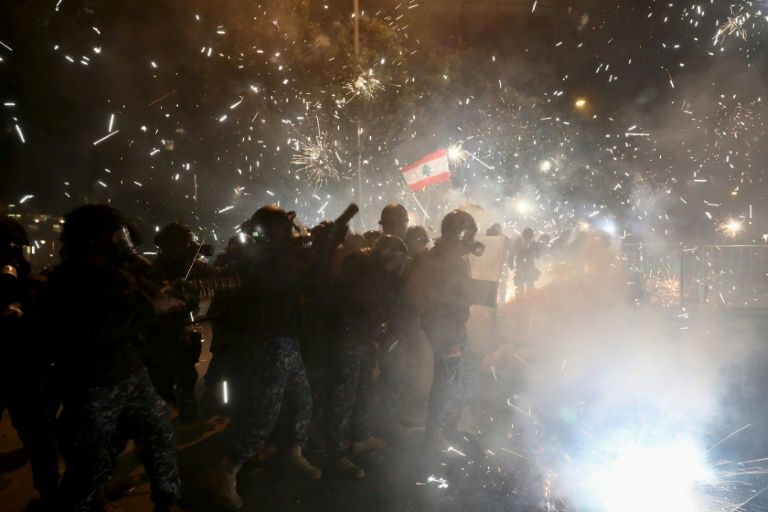Lebanese President calls for smooth formation of new government
Aoun made these remarks during his meeting with a delegation from the Supreme Islamic Shiite Council, according to a statement released by the Lebanese presidency.
The violence began after dozens of protesters — some concealing their faces in scarves — threw rocks and large plant pots at police guarding the road leading up to parliament.

Lebanese security forces react to fireworks hurled by anti-government protesters in downtown Beirut (Photo: AFP)
As clashes broke out between police and protesters in Lebanese, at least 220 people were injured on both sides on Saturday in the highest such tally in three months of anti-establishment demonstrations.
The protest movement rocking Lebanon since October 17 revived this week as a deepening economic crisis increases pressure to form a new government.
Advertisement
No progress appears to have been made towards finalising the cabinet, which protesters demand to be comprised of independent experts and exclude all established political parties.
Advertisement
According to local media, after several hours of clashes, the violence died down on demonstrators dispersed. Several were arrested.
The violence began after dozens of protesters — some concealing their faces in scarves — threw rocks and large plant pots at police guarding the road leading up to parliament.
On Thursday, hundreds of journalists staged a rally outside the Interior Ministry in Beirut against the anti-riot polices use of excessive force against demonstrators in recent days.
O Wednesday, at least 35 people were injured after clashes broke out between protesters and the army.
Lebanon has been swept by a wave of mostly peaceful protests aimed at the country’s elite that prompted Prime Minister Saad al-Hariri to resign on Oct. 29, pushing the country deeper into economic crisis.
On Tuesday night, riots broke out in Beirut’s Hamra area, with bank facades smashed and stones pelted at security forces who fired back with tear gas.
Last month, protesters took to the street in Lebanon and asked the banks to allow them to withdraw more money.
Anti-government protesters, who largely blame the country’s dire economy on corrupt politicians, say the limits are illegal and have turned their fury against bank officials and the financial sector.
The demonstrators said that they refused Diab’s appointment because it would empower corrupted political parties who were adopting the same old concept of arguing about shares in the government, which should not be the case amid the current pressing economic and financial challenges prevailing in the country.
(With inputs from agency)
Advertisement